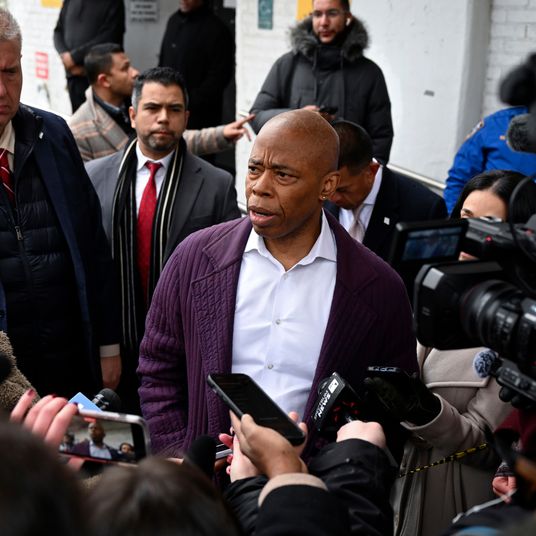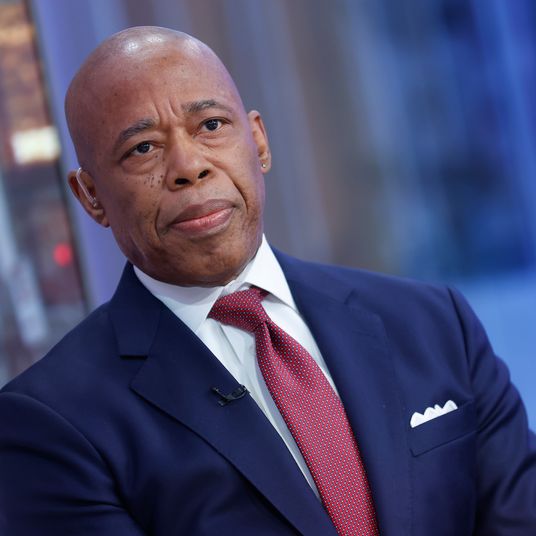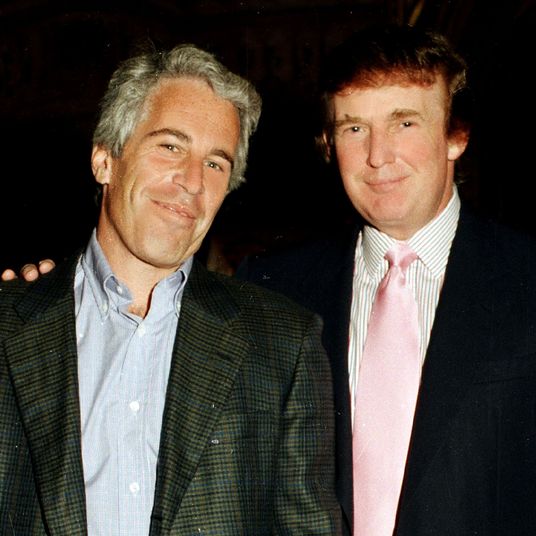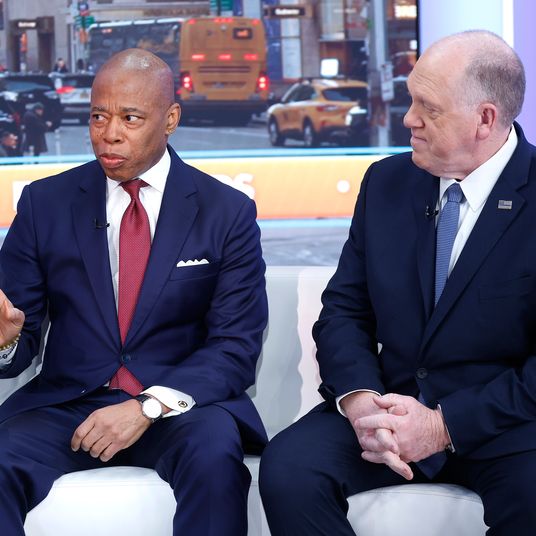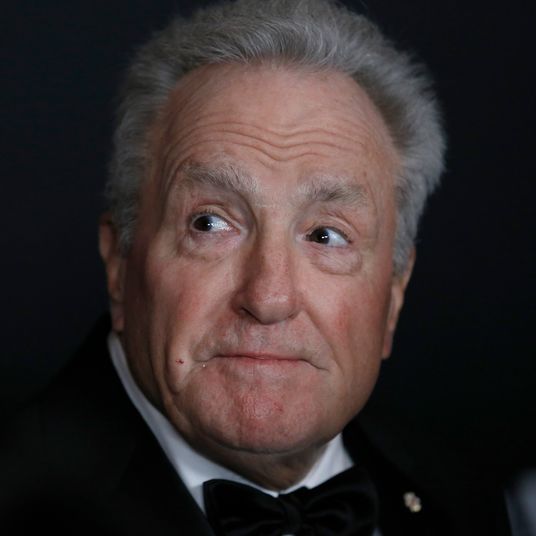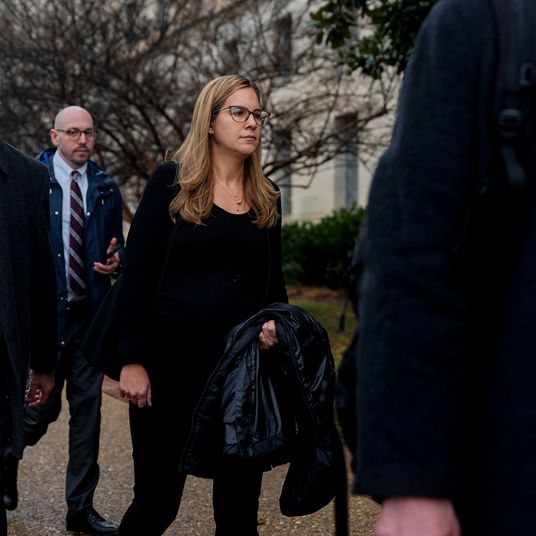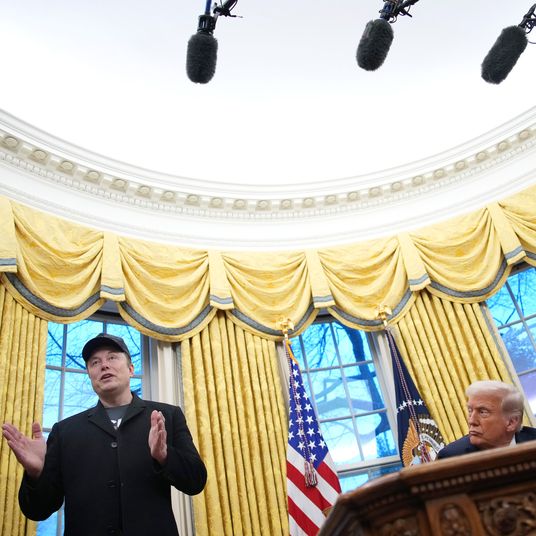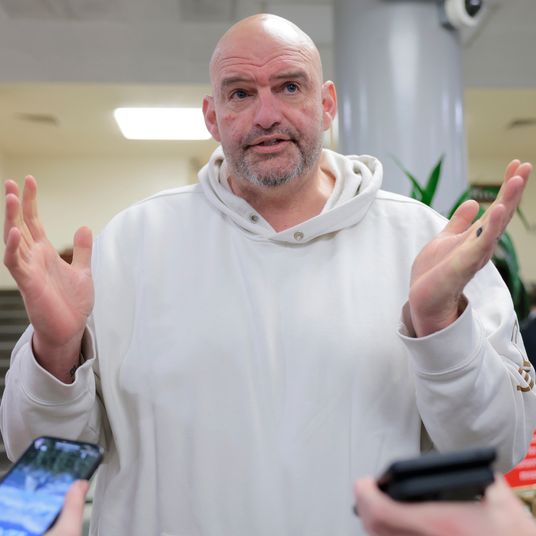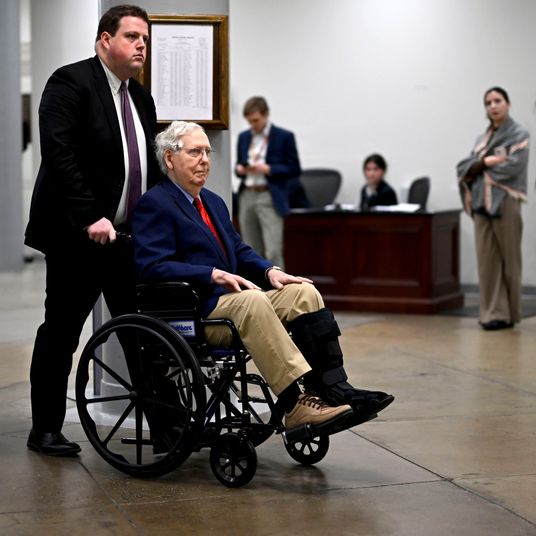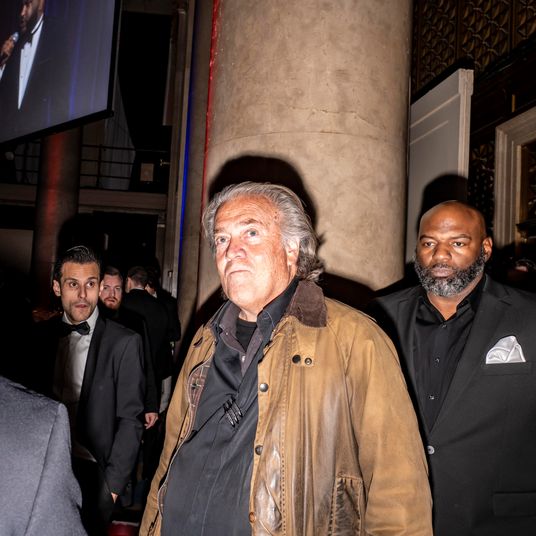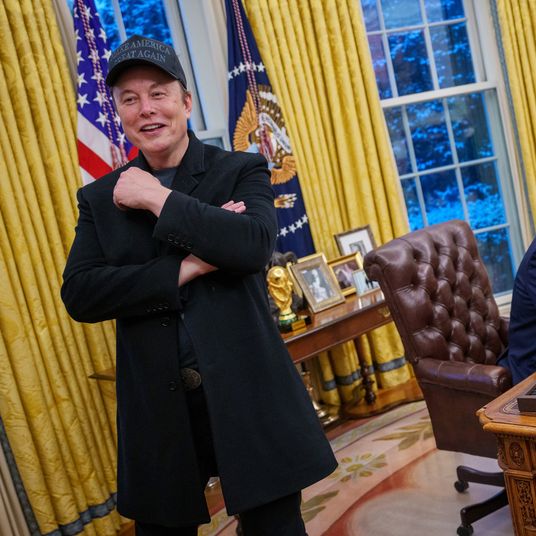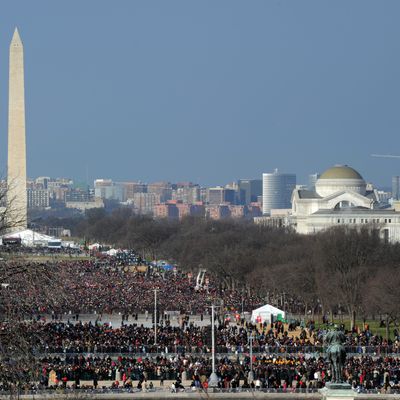
There is nothing quite like a presidential inauguration to bring to full bloom the cult of the presidency. We fuss over the pageantry and the ritual and the First Lady’s attire like the tittering royal subjects we fought a war to stop being. The cult of the presidency is not merely excessive deference to the president as a figure. Sometimes, as when we expect the president to do things beyond the powers of his office and rage at his failure, it is not even that. The cult of the presidency is a pervasive assumption that public life is a drama revolving around the president.
The current debate swirling around President Obama’s second term embodies that misconception. Obama is approaching the outset of his second term differently than his first, and also differently than the outset of his second two years, when he first confronted the Republican-controlled Congress. He is occupying popular centrist terrain, using his office to define the debate, and daring Republicans to oppose him. What will the outcome be? Some say Obama is treating the Republicans too meanly. Others think he has to be meaner.
But the prosaic reality is that Obama’s disposition isn’t the issue here. The main question is what the Republicans in Congress decide to do. The legislative results of Obama’s second term lie almost entirely in their hands. Obama may be the central figure in the national political drama, but the choice is being played out offstage.
None of this is to deny the enormous power vested within the president. Obama has a great latitude to select the terms of the debate. The second term will revolve, at least at the outset, over deficit reduction, immigration reform, and gun control. Those are the issues he picked. His position on all of them is relatively clear. There’s a deal on the table, and Republicans can either take it or not. Nobody knows or cares whether John Boehner’s wife has bangs.
Obama can increase the political pressure on them, but the calculation that will determine their decision is almost entirely internal. The most likely issue for a successful deal is immigration — the national party has determined that its low standing with Latino and Asian voters is so low it cannot afford a high profile fight against reform. On guns, the Republican base fiercely opposes any meaningful action, but elements of Obama’s proposals poll well enough that there is some chance they will budge. (Still less than 50-50, I’d hazard.) On the deficit, the party has shown no sign of willingness to trade higher tax revenue for cuts to social spending, so stalemate appears most likely.
Kind of dissatisfying, isn’t it? We like our presidential dramas. We want the Obama era to revolve around Obama and produce a character narrative that will eventually produce grist for 800-page tomes that will be Father’s Day gifts decades into the future. Obama has done his job extremely well, by my reckoning. But that is all he is — the head of one, equal branch of government, a man we have hired to do a job. Our need to elevate him into a monarchial figure not only causes us to persistently misunderstand the world around us, but is also detrimental to the habits of self-government.






